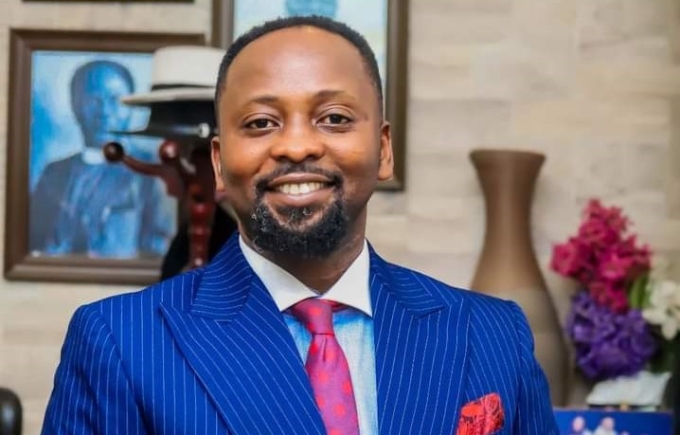The United Nations Eminent Peace Ambassador, Bishop Samuel Ben Owusu, is calling on Ghanaians to pray for guidance and wisdom from God for the Asantehene, Otumfuo Osei Tutu II, as he intervenes to find lasting peace in Bawku.
Bishop Ben Owusu, who is also the Founder and Leader of Pottersville Church International, said the Bawku issue, if not well handled, could spell doom for Ghana, and thus it is important for the nation to rally behind the Asantehene to find a lasting solution.
The UN Eminent Peace Ambassador made these remarks during an interview with Onua News in Accra.
“Otumfuo can invite both parties, the Supreme Court, the Attorney-General, and lawyers to assemble all the evidence before him so that the Bawku issue will not be solved traditionally, but legally and politically,” he said.
He added, “The Bawku issue is both political and traditional, and politicians should be mindful of their utterances. The IGP’s comment on paying special attention to the youth in Bawku during police recruitment should have been private. It shouldn’t have come out, and we will send a report to the UN and other international organizations to intervene.”
Bishop Ben Owusu warned that the Bawku issue is sitting on a time bomb, especially given its proximity to Burkina Faso where insurgency is rampant.
“The Bawku issue is a national security threat. Even the IGP was shot at when he visited Bawku, and this means it is not a normal conflict. People want to protect their traditions,” he emphasized.
The man of God praised President Mahama for appointing Otumfuo Osei Tutu II to intervene but criticized him for a comment made during a campaign tour, suggesting he sided with one faction.
He said that comment could jeopardize the outcome of Otumfuo’s mediation and suggested that President Mahama retract and apologize.
Illegal Mining Fight
Bishop Ben Owusu explained that Ghana has not been able to end illegal mining due to a lack of political will.
“Illegal mining is political. They [politicians] are lying to us. If we want to stop it, we can stop it. Akufo-Addo stopped the fight against illegal mining because of politics. He even put his presidency on the line but stopped the fight because the people voted against him,” he said.
He added that President Mahama has the potential to stop it because he will not contest elections again.
“We have not been able to stop because the politicians are involved. Let us name and shame politicians in galamsey. Cocoa prices can help fight illegal mining. If prices are increased, farmers will not give out their lands for galamsey,” he suggested.
Drug Abuse Among the Youth
Bishop Ben Owusu said the increasing use of opioids among the youth should be seen as a national security threat.
“It is a serious security threat. Youth unemployment is increasing and we are destroying our future,” he stated.
He explained, “The greatest capacity for development of every nation is human resources. Other countries who allowed their youth to indulge in drugs are now struggling and looking for human resources to drive development, but we are allowing ours to go waste.”
He suggested, “A special unit can be created within the Police Service that would move from ghetto to ghetto to arrest offenders. We can also create computer training centers for these youth because now, content creation is providing income. We must develop the youth because if the mind is working, they will not indulge in drug abuse.”
Indiscipline in Schools
Bishop Owusu blamed parents for the rising indiscipline and violence in schools, citing parental neglect.
“Children bringing guns to school must be blamed on parents. Students are on computers watching all sorts of things. Universities can create cultural toys for children to promote positive values,” he said.
He stressed that government must formulate policies on parenting and child upbringing, emphasizing that teachers are only responsible for education, not training.
Bishop Owusu cited China as an example, explaining, “Children go to three or four schools a day in China. In Ghana, children go to just one school for several hours with numerous assignments.”
He detailed that in China, children receive formal education for a few hours, then move to cultural education, followed by activities to develop their minds, and finally science and technology training.
By Kweku Antwi-Otoo












